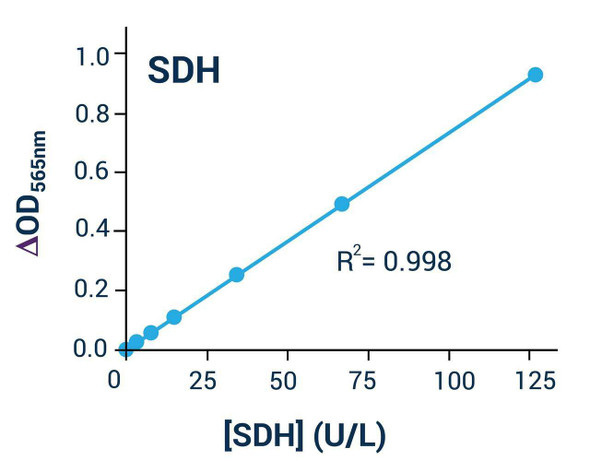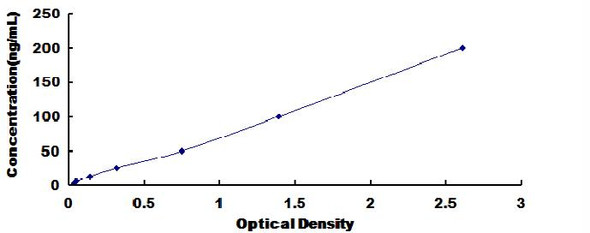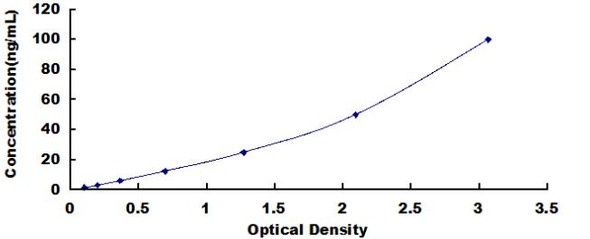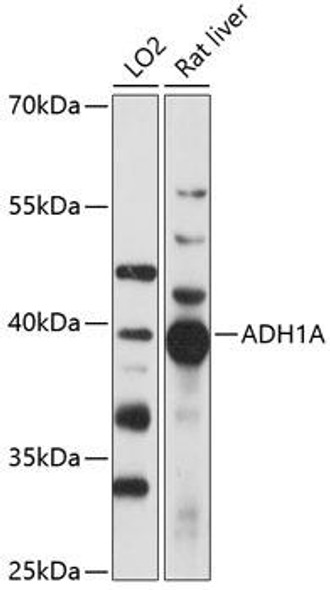Sorbitol Dehydrogenase Polyclonal Antibody
- SKU:
- CAB22009
- Product Type:
- Antibody
- Antibody Type:
- Polyclonal Antibody
- Reactivity:
- Human
- Mouse
- Rat
- Host Species:
- Rabbit
- Isotype:
- IgG
- Applications:
- WB
- IF
Description
Sorbitol Dehydrogenase Polyclonal Antibody (CAB22009)
The Sorbitol Dehydrogenase Polyclonal Antibody is a specialized tool for researchers studying sorbitol dehydrogenase, an enzyme involved in the metabolism of sorbitol. This antibody, produced in rabbits, is highly specific and reactive with human samples, making it a valuable asset in Western blot applications. By binding to the sorbitol dehydrogenase protein, this antibody allows for precise detection and analysis in a variety of cell types, making it ideal for investigations in biochemistry, metabolism, and diabetes research.Sorbitol dehydrogenase is a key enzyme in the pathways of sorbitol metabolism, playing a crucial role in maintaining glucose homeostasis and energy production.
Dysregulation of sorbitol dehydrogenase activity has been linked to conditions such as diabetes and diabetic complications, making it a target of interest for therapeutic interventions. By elucidating the function and regulation of sorbitol dehydrogenase, researchers can gain valuable insights into metabolic disorders and develop potential treatments to improve patient outcomes.
| Product Name: | Sorbitol Dehydrogenase Polyclonal Antibody |
| Product Code: | CAB22009 |
| Reactivity: | Human, Mouse, Rat |
| Applications: | Western blotting, Immunofluorescence |
| Host Species: | Rabbit |
| Purification Method: | Affinity purification |
| Isotype: | IgG |
| Reactivity: | Human, Mouse, Rat |
| Tested Applications: | WB, IF/ICC, ELISA |
| Key Applications: | Western blotting, Immunofluorescence |
| Recommended Dilution: | WB 1:500-1:1000, IF/ICC 1:50-1:200 |
| Storage Buffer: | Store at -20°C. Avoid freeze / thaw cycles.Buffer: PBS with 0.05% proclin300, 50% glycerol, pH7.3. |
| Positive Samples: | Mouse kidney, Mouse liver, Rat liver |
| Cellular Location: | cytosol, extracellular exosome, extracellular space, mitochondrial membrane |
Sorbitol dehydrogenase (SORD; EC 1.1.1.14) catalyzes the interconversion of polyols and their corresponding ketoses, and together with aldose reductase (ALDR1; MIM 103880), makes up the sorbitol pathway that is believed to play an important role in the development of diabetic complications (summarized by Carr and Markham, 1995 [PubMed 8535074]). The first reaction of the pathway (also called the polyol pathway) is the reduction of glucose to sorbitol by ALDR1 with NADPH as the cofactor. SORD then oxidizes the sorbitol to fructose using NAD(+) cofactor.
| Immunogen: | A synthetic peptide corresponding to a sequence within amino acids 100-200 of human Sorbitol Dehydrogenase (NP_003095.2). |
| Sequence: | RENDE FCKMG RYNLS PSIFF CATPP DDGNL CRFYK HNAAF CYKLP DNVTF EEGAL IEPLS VGIHA CRRGG VTLGH KVLVC GAGPI GMVTL LVAKA MGAAQ V |
| Synonyms: | RDH, SDH, XDH, SORD1, SORDD, HEL-S-95n |
| Calculated MW: | 38kDa |
| Observed MW: | 38kDa |










